It’s 3 a.m. You’ve been on your feet for 14 hours. Your eyes feel glued shut. The IV pump beeps. You reach for the wrong vial. The patient gets twice the dose. It’s not a nightmare-it’s a real, preventable mistake that happens more often than you think.
Why Nighttime Is the Riskiest Time for Medication Errors
When the sun goes down, your brain doesn’t shut off-but it does slow down. Fatigue from sleep deprivation doesn’t just make you groggy. It messes with your memory, slows your reaction time, and blunts your attention. In healthcare, that’s dangerous.
Studies show that medication errors spike by 12.1% during night shifts compared to daytime. Nurses working overnight have a 38% higher chance of making a mistake. Why? Because your circadian rhythm-the internal clock that tells your body when to sleep and wake-is fighting you. Your body thinks it’s bedtime. But you’re still administering insulin, checking blood pressure, and reading complex drug labels.
One study found that after just one night without sleep, cognitive performance drops by 25-30%. That’s like being legally drunk. You’re not just tired-you’re impaired. And in a hospital, that impairment can cost lives.
The Medications That Make Night Shifts Even More Dangerous
Some of the drugs you or your colleagues take to get through the night are actually making things worse.
Take diphenhydramine-the active ingredient in many over-the-counter sleep aids and allergy pills. It causes drowsiness in 50-60% of people. If you’re already exhausted and you take it to “help you sleep” after a shift, you’re not resetting your body. You’re adding chemical sedation on top of natural fatigue.
Same goes for zolpidem (Ambien), benzodiazepines like diazepam, and even some antidepressants like trazodone. These drugs leave behind what’s called “next-day impairment.” You might feel awake, but your brain is still foggy. Reaction times are slower. Decision-making is off. And when you’re handling high-risk meds like heparin, insulin, or opioids, that fog can turn deadly.
Even narcotic pain meds like oxycodone, which some staff take for chronic pain, cause sedation in 25% of users. If you’re on one of these and working nights, you’re not just at risk-you’re a risk.
NIOSH recommends switching to non-sedating alternatives whenever possible. For allergies, swap diphenhydramine for loratadine. For sleep, try melatonin or behavioral strategies instead of pills. Your patients-and your own safety-depend on it.
How Fatigue Steals Your Focus (Even When You Think You’re Fine)
Here’s the scary part: you won’t always know you’re impaired.
When you’re sleep-deprived, your brain stops recognizing how tired you are. It’s like drinking and thinking you’re sober. You feel “fine.” But your memory? Down 18%. Your vigilance? Down 23%. Your ability to catch a wrong dosage? Gone.
One study tracked anesthesiology residents after a full night on call. During a 4-hour simulated procedure, their alertness dropped by 23%. That’s not a small dip. That’s the difference between noticing a wrong drug label… and missing it entirely.
And it’s not just about accuracy. Communication crashes too. A 2018 study found that tired doctors had a 33% drop in effective communication. You might mean to say “give 5 mg of morphine.” But your mouth says “give 50 mg.” And in the quiet of the night, no one hears the mistake until it’s too late.
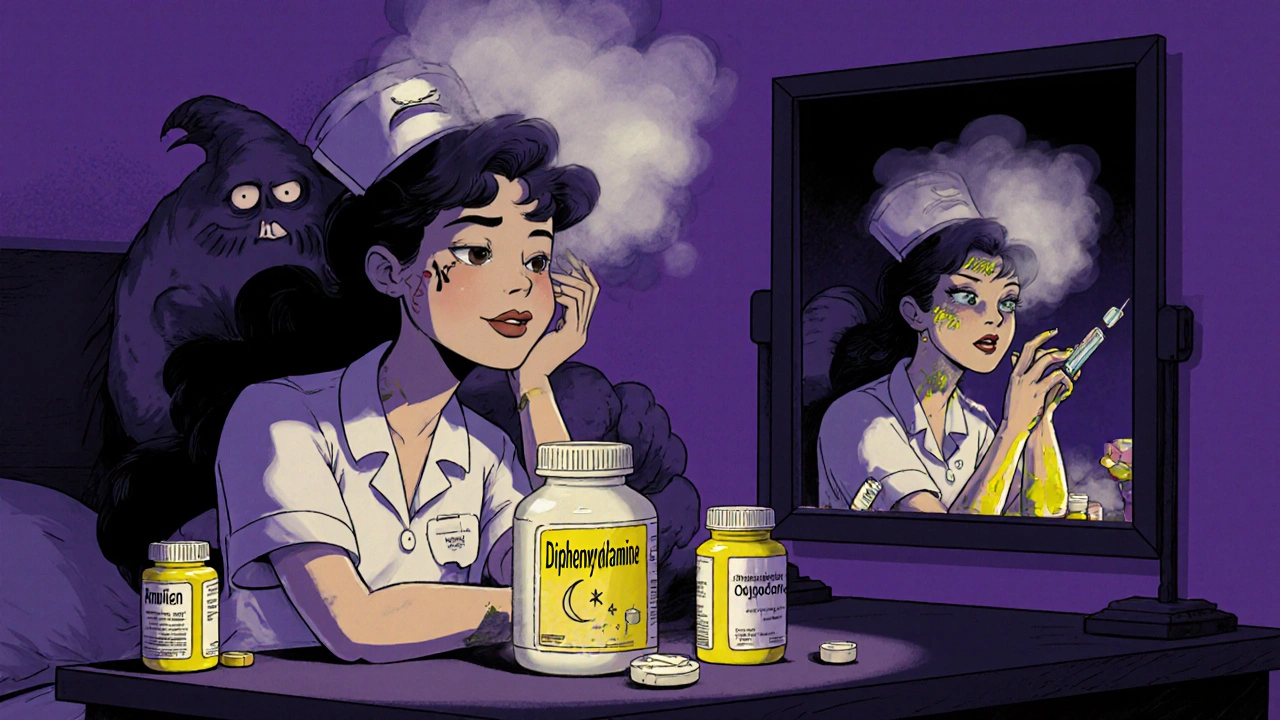
What Actually Works to Reduce Nighttime Errors
There’s no magic fix. But there are proven strategies-and most of them are simple.
1. Take a strategic nap. Not a 2-hour snooze. A 20-40 minute power nap before your shift or during a break. Studies show this boosts alertness by 12-15%. It’s not a cure, but it’s a buffer. Avoid naps longer than 90 minutes-they cause sleep inertia. You wake up groggier than before.
2. Use caffeine smartly. One cup of coffee 30 minutes before your shift helps. Two cups? Fine. Four? You’re just jittery. And don’t drink it after 2 a.m.-it’ll wreck your next night’s sleep. Caffeine is a tool, not a crutch.
3. Double-check everything. The “two-person rule” for high-risk meds isn’t bureaucracy-it’s survival. Have someone else verify the drug, dose, route, and patient. Even if you’re 99% sure. That 1% is where mistakes happen.
4. Use tech as a backup. Barcode scanning, automated alerts, and smart pumps cut error rates by 18%. If your hospital has them, use them. If they don’t, push for them. Technology doesn’t replace vigilance-it supports it.
5. Speak up. If you’re too tired to think clearly, say so. Tell your supervisor. Swap shifts. It’s not weakness. It’s professionalism. One nurse in a 2022 study said, “I’d rather be called out for being tired than for killing someone.” That’s the mindset.
Why Working Too Many Nights in a Row Is a Hidden Crisis
It’s not just one bad night. It’s the pile-up.
Working three or more nights in a row? That’s when your body starts breaking down. Your risk of depression jumps 40%. Diabetes risk rises 28%. Heart disease risk climbs 22%. You’re not just at risk for making a mistake-you’re at risk for long-term illness.
And here’s the worst part: even if you get a day off, you won’t fully recover. One night of total sleep loss takes up to three days to reset your brain. So if you’re working nights every other week, you’re living in a constant state of cognitive deficit.
Studies show that work-hour limits after 2003 didn’t fix the problem. Why? Because doctors and nurses still can’t sleep during the day. The noise, the kids, the bills-they keep the brain awake. So you’re stuck in a loop: tired at work, tired at home, tired all the time.
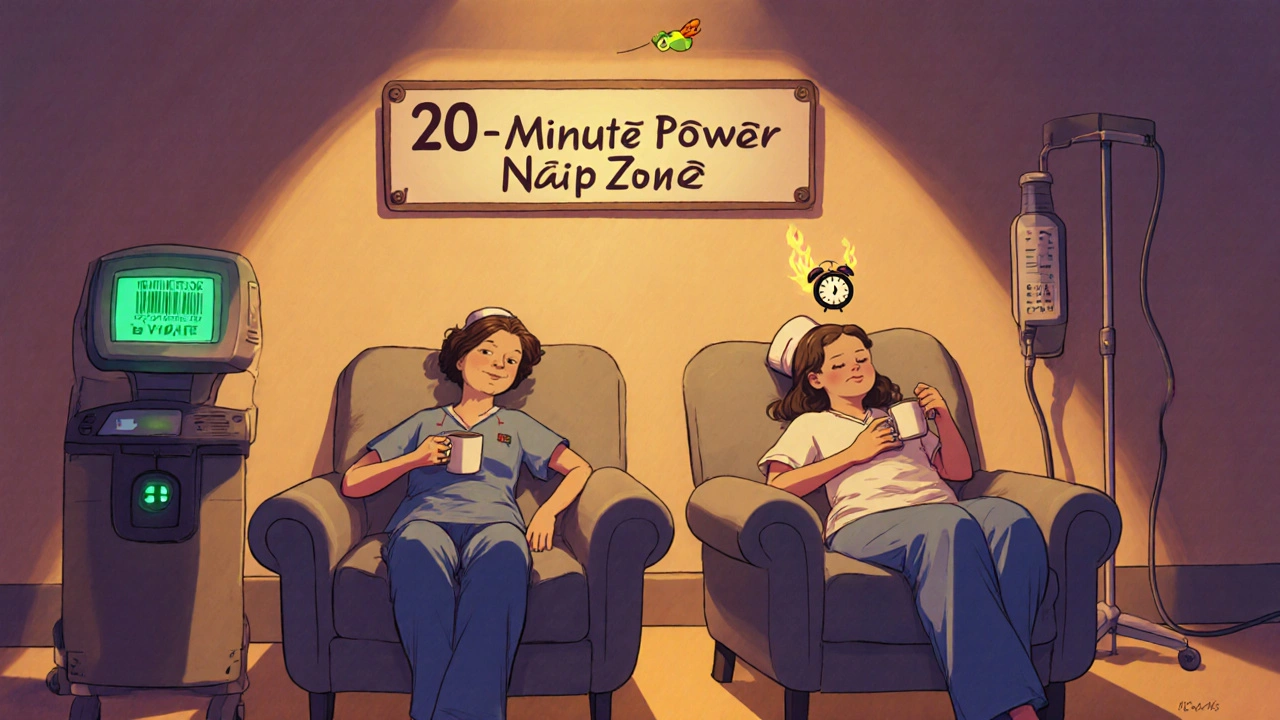
What Hospitals Need to Do (And What You Can Demand)
Systems need to change. But you don’t have to wait.
Ask for:
- Protected sleep rooms on-site during long shifts
- Rotating schedules that limit consecutive night shifts to two
- Access to non-sedating meds for staff with chronic conditions
- Regular fatigue risk assessments for high-risk units
And if your hospital won’t act? Bring the data. Cite the 2023 scoping review in the Journal of Clinical Nursing. Show them the 82% of studies linking fatigue to errors. Point to the $20 billion in annual costs from preventable mistakes. This isn’t about being “difficult.” It’s about being responsible.
The Bottom Line: Your Fatigue Isn’t Just Your Problem
Medication safety at night isn’t about willpower. It’s about biology. It’s about systems. It’s about recognizing that when you’re exhausted, your brain isn’t broken-it’s just human.
Don’t rely on coffee. Don’t blame yourself. Don’t assume you’re fine because you’re “used to it.”
Use the tools. Take the nap. Ask for help. Verify every dose. Push for better policies.
Because when you’re tired, your patients are trusting you to be the thing your body can’t be right now: sharp, alert, and completely present.
Be that person-even when you’re running on empty.

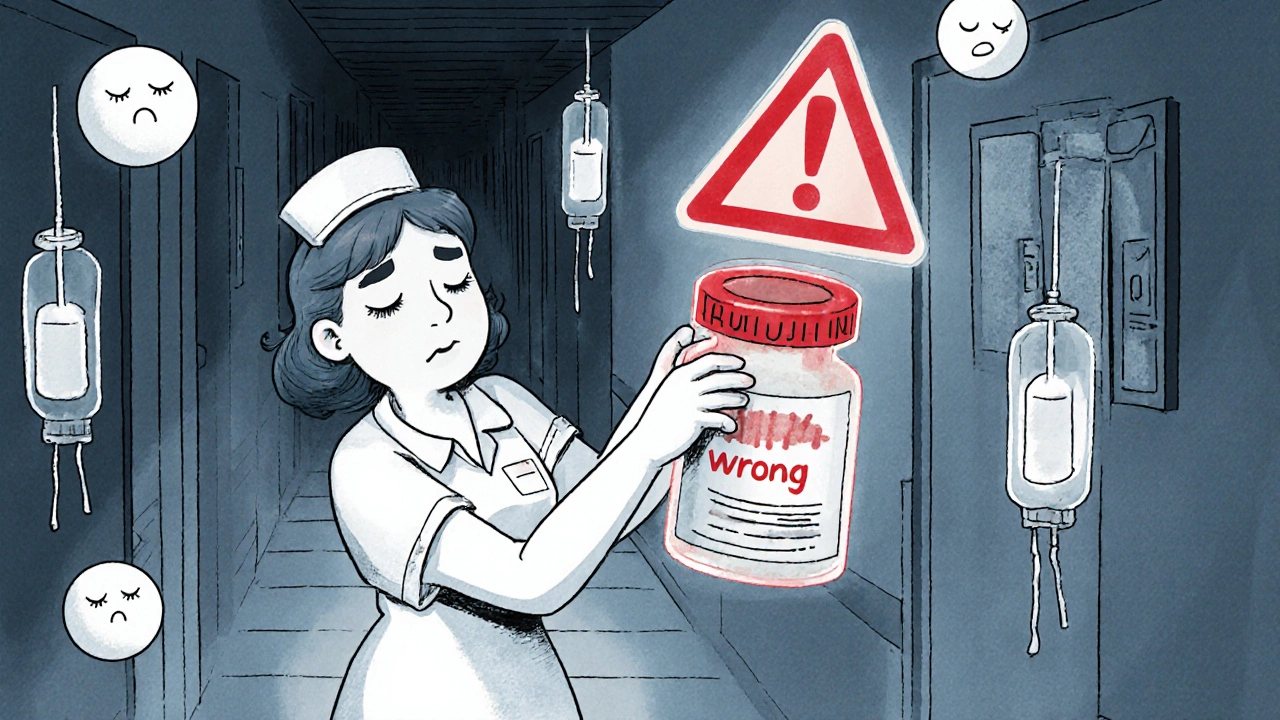
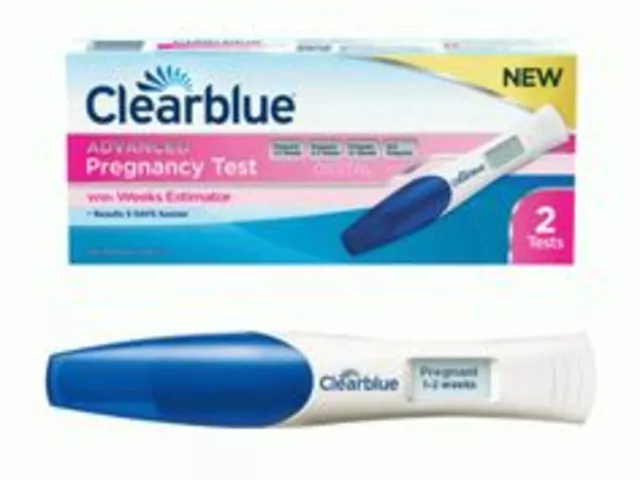
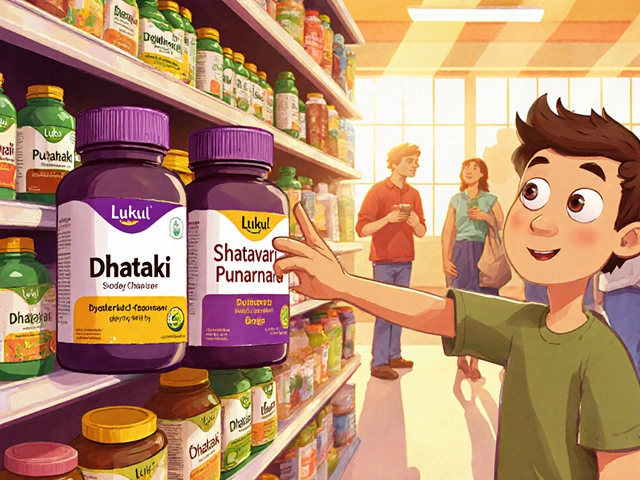
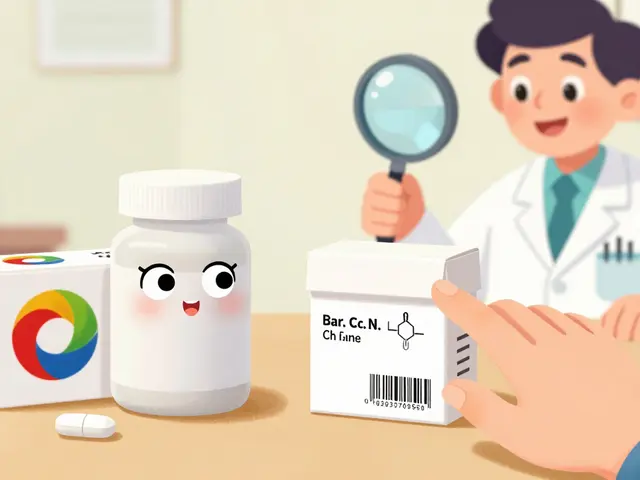


Iives Perl
November 27, 2025 AT 10:19steve stofelano, jr.
November 27, 2025 AT 11:16Savakrit Singh
November 27, 2025 AT 20:28Cecily Bogsprocket
November 27, 2025 AT 22:02Jebari Lewis
November 29, 2025 AT 17:00Emma louise
November 30, 2025 AT 20:44sharicka holloway
December 1, 2025 AT 02:19Alex Hess
December 2, 2025 AT 17:28Leo Adi
December 3, 2025 AT 19:39Melania Rubio Moreno
December 5, 2025 AT 13:46Gaurav Sharma
December 7, 2025 AT 06:46Iives Perl
December 8, 2025 AT 22:01